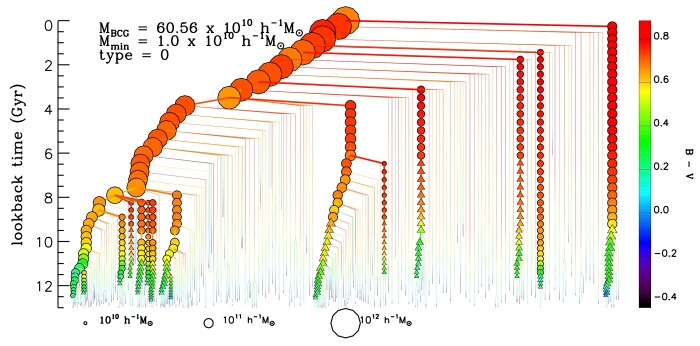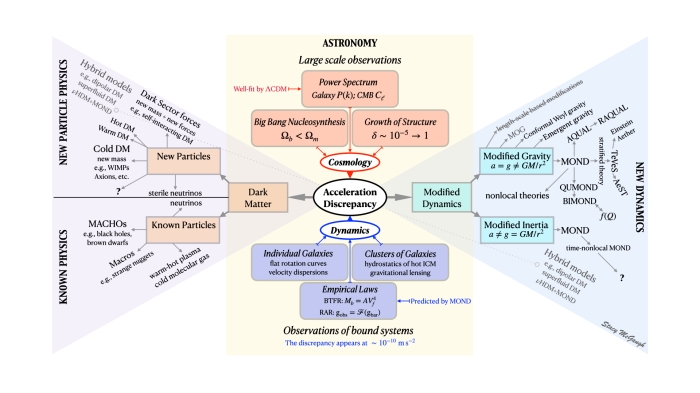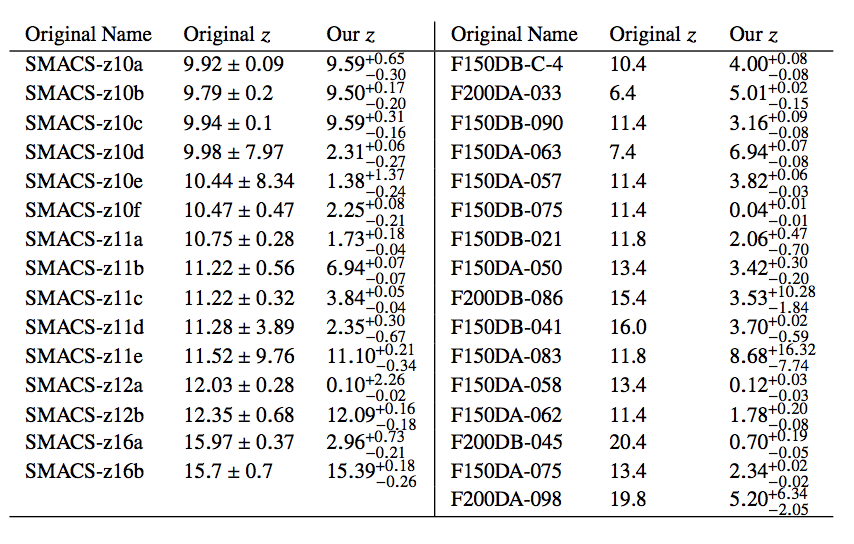Given recent developments in the long-running hunt for dark matter and the difficulty interpreting what this means, it seems like a good juncture to re-up* this: The history of science is a decision tree. Vertices appear where we must take one or another branching. Sometimes, we take the wrong road for the right reasons. A good example is the geocentric vs. heliocentric cosmology.
Publicaciones de Rogue Scholar

The results from the high redshift universe keep pouring in from JWST. It is a full time job, and then some, just to keep track. One intriguing aspect is the luminosity density of the universe at z > 10. I had not thought this to be problematic for LCDM, as it only depends on the overall number density of stars, not whether they’re in big or small galaxies. I checked this a couple of years ago, and it was fine.

I want to start by thanking those of you who have contributed to maintaining this site. This is not a money making venture, but it does help offset the cost of operations. The title is not related to this, but rather to a flood of papers addressing the questions posed in recent posts. I was asking last time “take it where?” because it is hard to know what cosmology under UT will look like. In particular, how does structure formation work?

I had written most of the post below the line before an exchange with a senior colleague who accused me of asking us to abandon General Relativity (GR). Anyone who read the last post knows that this is the opposite of true. So how does this happen? Much of the field is mired in bad ideas that seemed like good ideas in the 1980s.

Imagine if you are able that General Relativity (GR) is correct yet incomplete. Just as GR contains Newtonian gravity in the appropriate limit, imagine that GR itself is a limit of some still more general theory that we don’t yet know about. Let’s call it Underlying Theory (UT) for short.

Cosmology is challenged at present by two apparently unrelated problems: the apparent formation of large galaxies at unexpectedly high redshift observed by JWST, and the tension between the value of the Hubble constant obtained by traditional methods and that found in multi-parameter fits to the acoustic power spectrum of the cosmic microwave background (CMB). Maybe they’re not unrelated?

Kuhn noted that as paradigms reach their breaking point, there is a divergence of opinions between scientists about what the important evidence is, or what even counts as evidence. This has come to pass in the debate over whether dark matter or modified gravity is a better interpretation of the acceleration discrepancy problem. It sometimes feels like we’re speaking about different topics in a different language.

I’ve reached the point in the semester teaching cosmology where we I’ve gone through the details of what we call the three empirical pillars of the hot big bang: Hubble Expansion Primordial [Big Bang] Nucleosynthesis (BBN) Relic Radiation (aka the Cosmic Microwave Background;

I noted last time that in the rush to analyze the first of the JWST data, that “some of these candidate high redshift galaxies will fall by the wayside.” As Maurice Aabe notes in the comments there, this has already happened. I was concerned because of previous work with Jay Franck in which we found that photometric redshifts were simply not adequately precise to identify the clusters and protoclusters we were looking for.

One does not simply form stars from 100% of the available baryons.